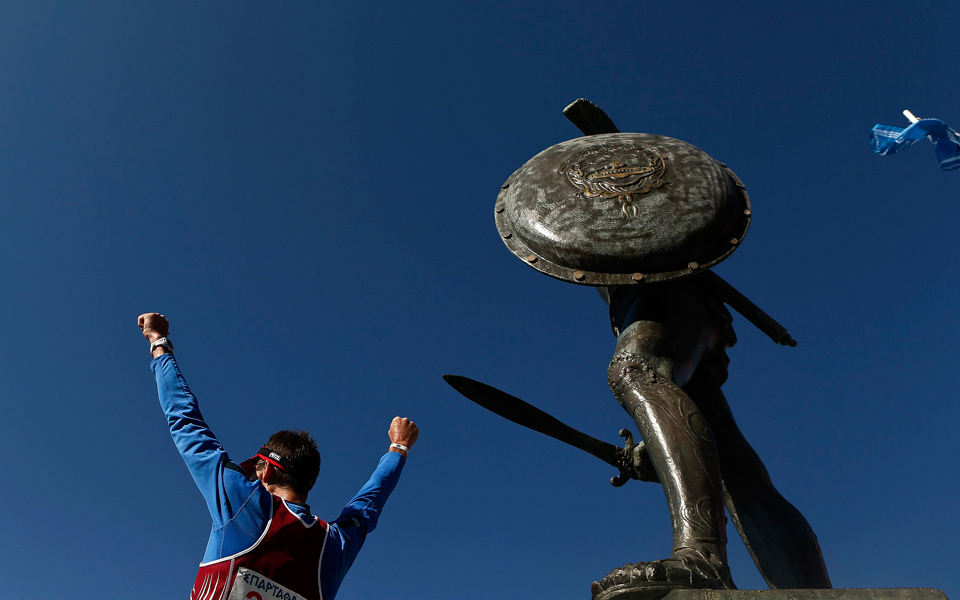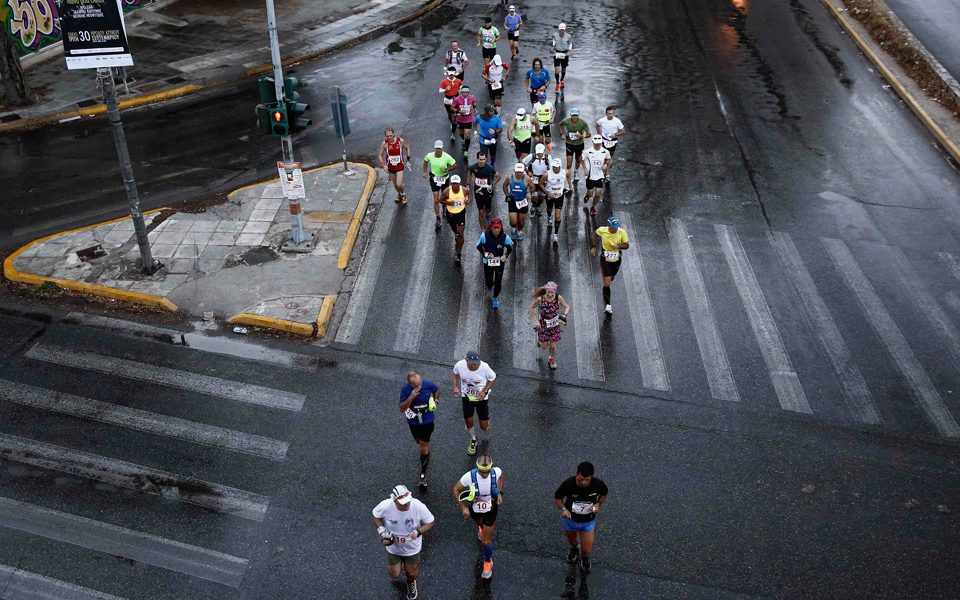Attempting the Spartathlon is not for the light-hearted,
which is why it has inspired a film that aims to tell it like it is.
The 246km Spartathlon race is inspired by the legendary run completed by ancient Athenian Pheidippides, who, before the battle of Marathon in 490 BC, headed to Sparta desperately seeking help for his city in its war with the Persians. The ancient Greek historian Herodotus recorded that Pheidippides arrived in Sparta a day after departing from Athens, and as it’s unlikely that he hitch-hiked his way there, the event is still considered a near-miraculous feat. In 1982, Greek history buff John Foden, a British RAF Wing Commander, decided to put his books down and attempt the ultra run himself, and, joined by a few other brave souls, did so with sweaty success.
The extremely impressive event drew 45 runners the following year, when the 1st International Spartathlon took place. That was followed, in 1984, by the establishment of the International Spartathlon Association. Since then, the high endurance race, which every September commences in the early hours outside the Odeon of Herod Atticus in Athens’ historical center and ends at the statue of Leonidas in Sparta, attracts hundreds of ambitious runners from around the world every year who attempt the 36-hour ultra race.
Over the last 25 years it has starred some of the most accomplished figures in sport, such as Scott Jurek and Ivan Cudin. It has also featured superstar Greek runner-cum-poet Yiannis Kouros, who has won twice and achieved the four, all-time best performances by running the Spartathlon in 20 hours 25 minutes in 1984, 20:29 in 1990, 21:53 in 1983 and 21:57 in 1986. Like no one else, Kouros has come closest to the incredible time of 20 hours.
“Over the last 25 years Spartathlon has starred some of the most accomplished figures in sport, such as Scott Jurek and Ivan Cudin. It has also featured superstar Greek runner-cum-poet Yiannis Kouros”

The 246km Spartathlon race is inspired by the legendary run completed by ancient Athenian Pheidippides
More recently, Greek American Dean Karnazes, author of Ultramarathon Man: Confessions of an All Night Runner, has joined the muscular list of sports personalities running the race.
British sports journalist-turned-documentary filmmaker Barney Spender, who discovered the weird world of the Spartathlon while living and working in Greece from 2004 to 2009, has made a documentary called The Road To Sparta, which he describes as “an artumentary where sport meets history meets music, a film of brain, brawn and beauty.”
The film centers on Karnazes and three mid-range and amateur (that is, mere mortal) runners attempting the race for the first time, in 2014. Karnazes, known for never shying away from a jaw-dropping, knee-buckling challenge, made the ultra race even harder for himself by adapting his diet to that of Pheidippides, rather than relying on high-tech sports drinks and superfoods as essential fuel.
“I am writing a book about Pheidippides,” he said before the race, “so I want to take on the course using only the food and drinks that would have been available to him two-and-half thousand years ago. I guess that means a lot of olives, figs, dried meat and water.” After running, Karnazes revealed it was the toughest race he’d ever encountered: “I don’t know if I’ve ever suffered so much.”
“It has history, it has pain, it has glory,” Spender says about The Road to Sparta, which is due to be released in 2016. “And it has some beautiful landscapes. It is Greece in a nutshell.”
“It has history, it has pain, it has glory,” Spender says about The Road to Sparta, which is due to be released in 2016. “And it has some beautiful landscapes. It is Greece in a nutshell.”









